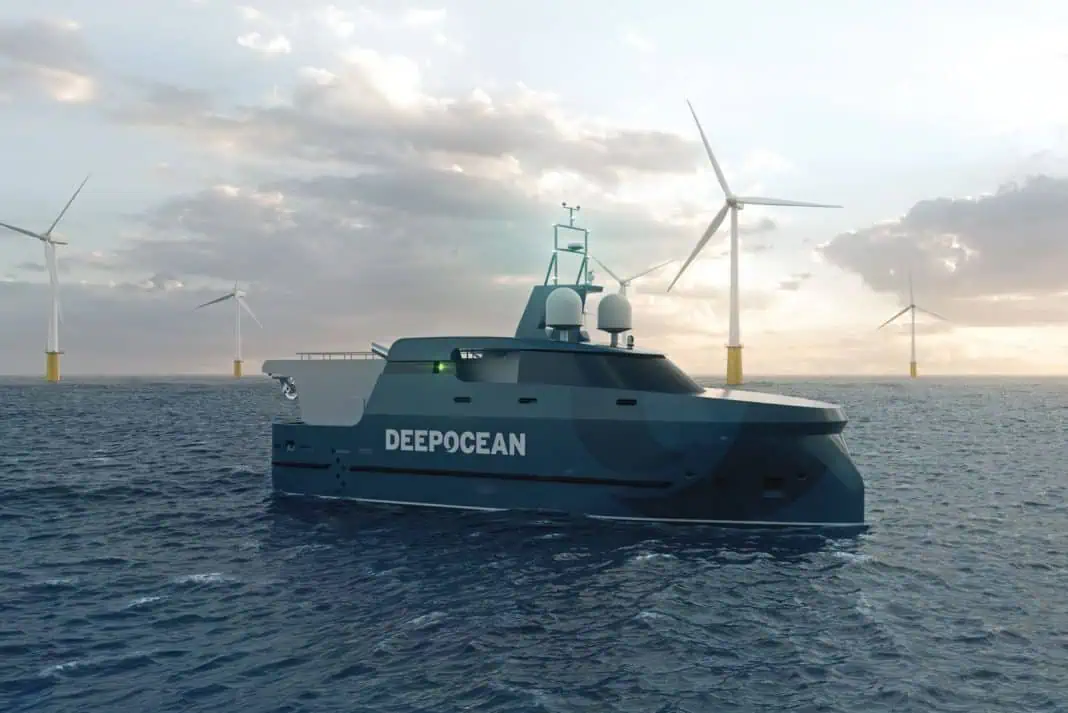Ocean services provider DeepOcean has entered into a long-term charter agreement for a newbuild unmanned surface vessel (USV) which will be utilised for subsea inspection, maintenance and repair (IMR) and survey work in the offshore renewables and oil and gas industries.
DeepOcean is chartering the vessel from USV AS – a joint venture company established by Solstad Offshore, Østensjø and DeepOcean whose main purpose is to invest and own USVs.
“The USV can be a game-changer for subsea inspection and intervention work, offering substantial reductions in operating expenditure and emissions. We are delighted to add the USV to our fleet of chartered vessels,” says Øyvind Mikaelsen, CEO of DeepOcean.
ROV and tooling
The USV will be equipped with a work ROV that is capable of operating down to 1,500 metres water depth, plus a sizeable tool package to perform subsea operations. The USV will be capable of handling most of all subsea inspection work, survey work and a significant part of subsea intervention tasks.
To increase the USVs workable weather window, it is equipped with a newly developed launch and recovery system which allows for work class ROVs to be operated from relatively small vessels, such as the USV.
The USV will be remotely controlled from shore – but will have many autonomous features to ensure safety and integrity of the spread. It can operate in severe weather conditions. During operations, both the USV vessel crew and ROV operators will be co-located in the same remote operating centre.
“We see great potential in using the USV technology in combination with existing solutions to reduce cost and maximise the operational and environmental benefits on behalf of operators of offshore renewable and oil and gas fields,” adds Øyvind Mikaelsen.
Hybrid propulsion
The USV will be equipped with a hybrid diesel-electric propulsion system and a battery package which allows the unmanned vessel to operate offshore for up to 30 days without charging or refuelling.
It is estimated that the USV solution can reduce CO2 emissions with more than 90 percent compared to a conventional offshore vessel when conducting subsea IMR operations.
“DeepOcean has set a target to achieve a 45 percent reduction in CO2 emissions before 2030 and become carbon neutral by 2040. Unmanned, autonomous and remotely controlled solutions, such as the USV, are key elements of this strategy,” adds Øyvind Mikaelsen.
The USV will be 24metres long and 7.5 metres wide. USV AS has contracted Astilleros Gondán shipyard to build the USV. Delivery of the vessel is expected by the end of2024. The plan is that the USV, following offshore testing, will be ready for operations in 2025, when it will go on charter for DeepOcean.












